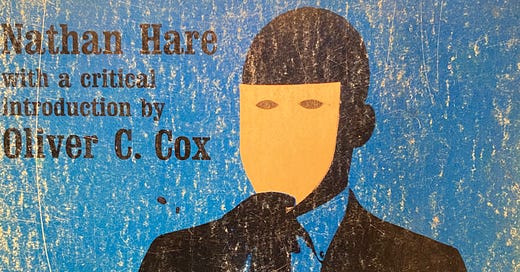If you listen carefully to the desires of proponents and defenders of Critical Race Theory, sometimes you will hear something other than paranoid rants about the all-powerful hegemony of White Supremacy. I have listened long enough to recognize a plaintive plea when I hear one. The plea is generally of the form that life ain’t so easy when you’re a ghet…
Keep reading with a 7-day free trial
Subscribe to Stoic Observations to keep reading this post and get 7 days of free access to the full post archives.




